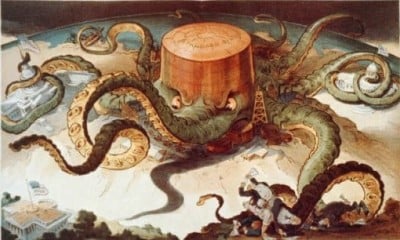Why Quantitative Easing is a Bust. What about Higher Wages?
Why is the economy still in the doldrums after 6 years of zero rates and three rounds of Quantitative Easing? Is it possible higher wages would get the economy back on track? After all a healthy economy is a consumer driven one.
The Case for Higher Wages
In an earlier post, Why the “Middle Class” is a Myth, we looked at the middle/working class in a new way. It is somewhat appropriate that the period we call “The Roaring Twenties” is where the myth of the “working/middle class began.
“That decade [1920’s] was the first in history when any population enjoyed the comforts of a “consumer society.” The remarkable growth rates of that decade were driven entirely by Americans’ purchases of automobiles, ranges, radios, phonographs, toasters, refrigerators, electric fans and more. The whole world saw the miracle of the first genuine non-professional middle class. These new luxuries were not restricted to the very rich and doctors and lawyers; wage workers were the majority consumers of these “consumer durable’s.” Source
Credit was becaming more available to wage earners leading to a high demand for luxury items. As we all know this lead to greater household debt and the myth was born.
Today, we are facing an ecomony with spiralling out-of-control debt, low consumer spending and flat wages. It is apparent that zero interest rates and quantitative easing has not worked. Maybe it is time to look at the economic impact higher wages could possibly have. How is the economy supposed to grow if people aren’t buying things? Higher wages may be the answer.
Mike Whitney in an article for Global Research, postulates that increasing wages for the working class would improve the economy as a whole and just might be the injection the economy needs.
Quantitative Easing Was a Bust; Let’s Try Higher Wages Instead
Why is the economy still in the doldrums after 6 years of zero rates and three rounds of Quantitative Easing?
Its because consumers aren’t consuming and there is too much debt. You see, despite the Feds wacko theories about pumping liquidity into the financial system to make investors feel wealthier, people actually have to buy things to generate growth. And the truth is, consumers have reduced their spending because wages are flat, incomes are falling and many of them are still hanging on by the skin of their teeth.
So how is the economy supposed to grow if people aren’t buying things? It cant.
See full story on www.globalresearch.ca
Image courtesy of www.globalresearch.ca



















